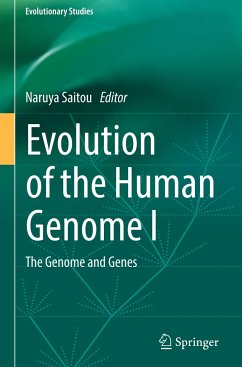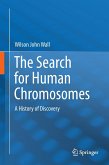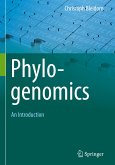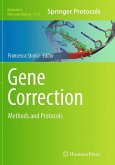This book reviews the human genome from an evolutionary perspective. No such book has ever been published before, although there are many books on human genomes. There are two parts in this book: Overview of the Human Genome (Part I) and The Human Genome Viewed through Genes (Part II). In Part I, after a brief review of human evolution and the human genome (by Naruya Saitou), chapters on rubbish or junk DNA (by Dan Graur), GC content heterogeneity (by Satoshi Oota), protein coding and RNA coding genes (by Tadashi Imanishi), duplicated genes (by Takashi Kitano), recombinations (by Montanucci and Bertranpetit), and copy number variations including microsatellites (by Naoko Takezaki) are discussed. Readers can obtain various new insights on the human genome from this part. In Part II, genes in X and Y chromosomes (by Yoko Satta and others), HLA genes (by Timothy A. Jinam), opsin genes (by Shoji Kawamura and Amanda D. Melin), genes related to phenotypic variations (by RyosukeKimura), transcription factors (by Mahoko Takahashi and So Nakagawa), diabetes-related genes (by Ituro Inoue), disease genes in general (by Ituro Inoue and Hirofumi Nakaoka), and microbial genomes (by Chaochun Wei) are discussed. The human genome sequences were determined in 2004, and after more than 10 years we are now beginning to understand the human genome from an evolutionary point of view. This book furnishes readers with a good summary of current research in the field.
"Saitou's Evolution of the Human Genome I offers a strikingly comprehensive introduction to both the evolutionary history of the human genome and molecular and computational methods for studying it. ... it will serve as useful background reading for advanced undergraduates and beginning graduate students venturing for the first time into this fast-moving field. Summing Up: Recommended." (D. P. Genereux, Choice, Vol. 56 (2), October, 2018)








